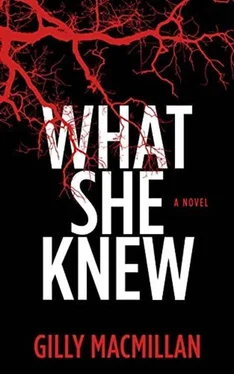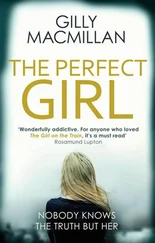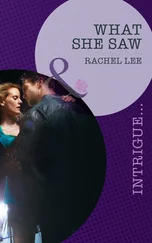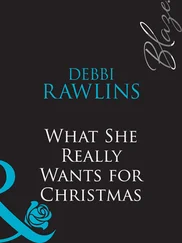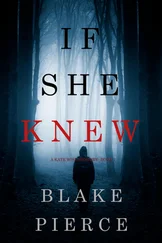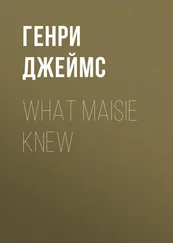Those editorial pieces asked a lot of questions about me, and about Ben’s case. You can imagine that, can’t you? Perhaps you read them. They questioned my morals and they cast doubt on my fitness to raise a child. They condemned me roundly for my slack parenting in letting Ben run ahead in the woods. They blamed me, made a social pariah of me. Single mother, failed mother, person of dubious social status, target.
Here’s what they didn’t ask: they showed no curiosity whatsoever about whether I’d considered the decision to let Ben run ahead, or any of the factors I might have taken into account; they didn’t examine the sense of loss I had to overcome when John left me, or my efforts at rebuilding, or my longing to be a good mother in his absence; they didn’t ask how much I loved Ben.
Nowhere did any journalist mention the hardship of single parenthood, the evenings spent alone, the pressures of making difficult decisions without support, the painful absence of a partner who might have been there if life had turned out differently.
These were people, I thought, with a growing sense of desperation, who would have put me in a workhouse a hundred years ago, and a few centuries before that strapped me into a scold’s bridle, or built a tall bonfire just for me to sit atop, and lit it with flaming torches, which underscored with flickering light their hard-bitten features, their lack of mercy or compassion.
And nowhere, in any of the hundreds of words written, did any of them lay a scrap of blame at John’s door. In contrast, he was the object of sympathy, protected by his gender and his profession: paediatric general surgeon, his new wife a deserved salve for his pain, not a cause of the breakdown of our marriage. One of them even featured a photograph of John and Katrina looking like a perfect unit, irreproachable in their togetherness.
I was their target because I was socially unacceptable, and so they did everything they legally could: they publicly lanced me with words which were written, examined and edited, each process carefully honing them in a calculated effort to push people’s buttons once they were published, to froth up public opinion around them so that my situation could titillate others, could thrill and bolster the minds of the smug and judgemental. Schadenfreude . Conservatism. Better the worst happens to somebody else, because, quite frankly, they must have done something to deserve it.
And they felt entitled to do that, these so called ‘thinkers’, as they sat comfortably behind their desks with their reference books and their own unexamined moral compass, because I was nothing to them. Ben and I were simply the commodity that would sell their papers, nothing more. And these were the very papers that I used to read, that I used to carry down the road from the shop and bring into my home.
It was cowardly, yellow journalism, and I knew that. The problem was, knowing it wasn’t enough to stop every single word from chipping away any final scraps of self-respect or dignity that I might have had left. I was only human, after all.
And I suppose I’m interested now to know whether it troubles you to read these things, to know that the rug you’re standing on so securely can be whipped out from under your feet rapidly and completely? Or do you feel safer than that? Do you assume that your foundations are more secure than mine, and that my situation is too extreme to ever befall you? Have you noted the moments when I made mistakes that you might have avoided? Do you imagine that you would have behaved with a more perfect maternal dignity in my situation, that you would be unimpeachable? Perhaps you wouldn’t have been stupid enough to lose your husband in the first place.
Be careful what you assume, is what I’d say to that. Be very careful. I should know. I was married to a doctor once.
I’m also interested to know how uncomfortable you feel now. Whether you’re regretting our agreement. Remember the roles we allocated each other? Me: Ancient Mariner and Narrator. You: Wedding Guest and Patient Listener. Do you wish you could shuffle away yet? Refill your glass perhaps? Now that my grip is loosening whose side are you on? Mine, or theirs? How long will you stay with the underdog, given that she’s so beaten now, so unattractive? Displaying here and there signs of mental instability.
If I were to make a final bid to keep your attention I suppose I would say that if it troubles you to hear these things from me, to witness my descent, then perhaps you can take heart from the fact that it pains me very, very deeply to confess them.
When, finally, the darkness outside my studio began to dissolve that morning, I pulled my chair away from the computer, tore my horrified eyes from the screen. With ice-cold fingers I pulled my dressing gown around me and I watched the grainy night contours of my garden morph slowly into a strangely lit morning where the rising sun tinted the pendulous clouds so that they were not entirely black, but coloured instead with bruised fleshy tones, burnished in places. It was the kind of light that nobody would mistake for hope.
Back in the kitchen, it felt as though I was meeting my possessions after an absence. I boiled the kettle, and realised that I hadn’t done that myself for days, because Nicky had done everything. Almost out of curiosity I opened the fridge, having no idea what was in it, and found cooked meals, in labelled containers, prepared by Nicky before she left, and half a pint of fresh milk.
At the kitchen table, warming slowly as the heating in the house cranked up around me with its familiar clicks and clonks, I began to look at Ben’s schoolbooks.
There were five of them. There wasn’t a great deal of work in each one as it was so early in the school year, but I started to work through them: maths, literacy, spellings, a history project and a news book.
The first page of the news book made me smile.
Ben had drawn a picture of a huge bed, which filled the entire page. In it was a small stick figure. Underneath it he had written, I spent the hole weekend in bed . There was a comment beside it in red ink: Are you sure that’s all you did, Ben? I expect you did something else. The drawing of the bed is nice .
It even made me smile, because it was nonsense, and I thought simply: this is the world I want to be in, the imaginative, funny world that’s my son.
I knew then, with perfect clarity, that if Ben didn’t survive this, then nor could I.
Five of us turned up: me, and four men in full gear. Black clothing, bullet-proofed jackets, caps that hide your eyes, and shoes with soles that were thick enough to do damage. All my men were armed. All of us wore earpieces, to keep in radio contact. I was leading.
It was 0500 hours. It was dark. Early morning hush was settled over the neighbourhood like a blanket.
We parked quietly around the corner, killing the car engine quickly, and when we got out we didn’t talk, communicating with gestures only. Three of us stayed at the end of the driveway, in the shadows and out of sight, and we waited there silently while I sent two around the side of the property.
We didn’t want anybody slipping out of the back.
Streetlights revealed that the bungalow was in bad condition, in contrast to the neighbouring properties, which were immaculate, their front gardens displaying neatly trimmed lawns, and tended borders, containing closely clipped shrubs like shiny suburban trophies.
The flowerbeds in our bungalow’s garden were overgrown, and the lawn was muddy and unkempt, but the metal gate at the side of the house had shiny black paint on it and its latch didn’t squeak when my two DCs opened it and sidled through it.
My guess was that its decline was recent.
Читать дальше
